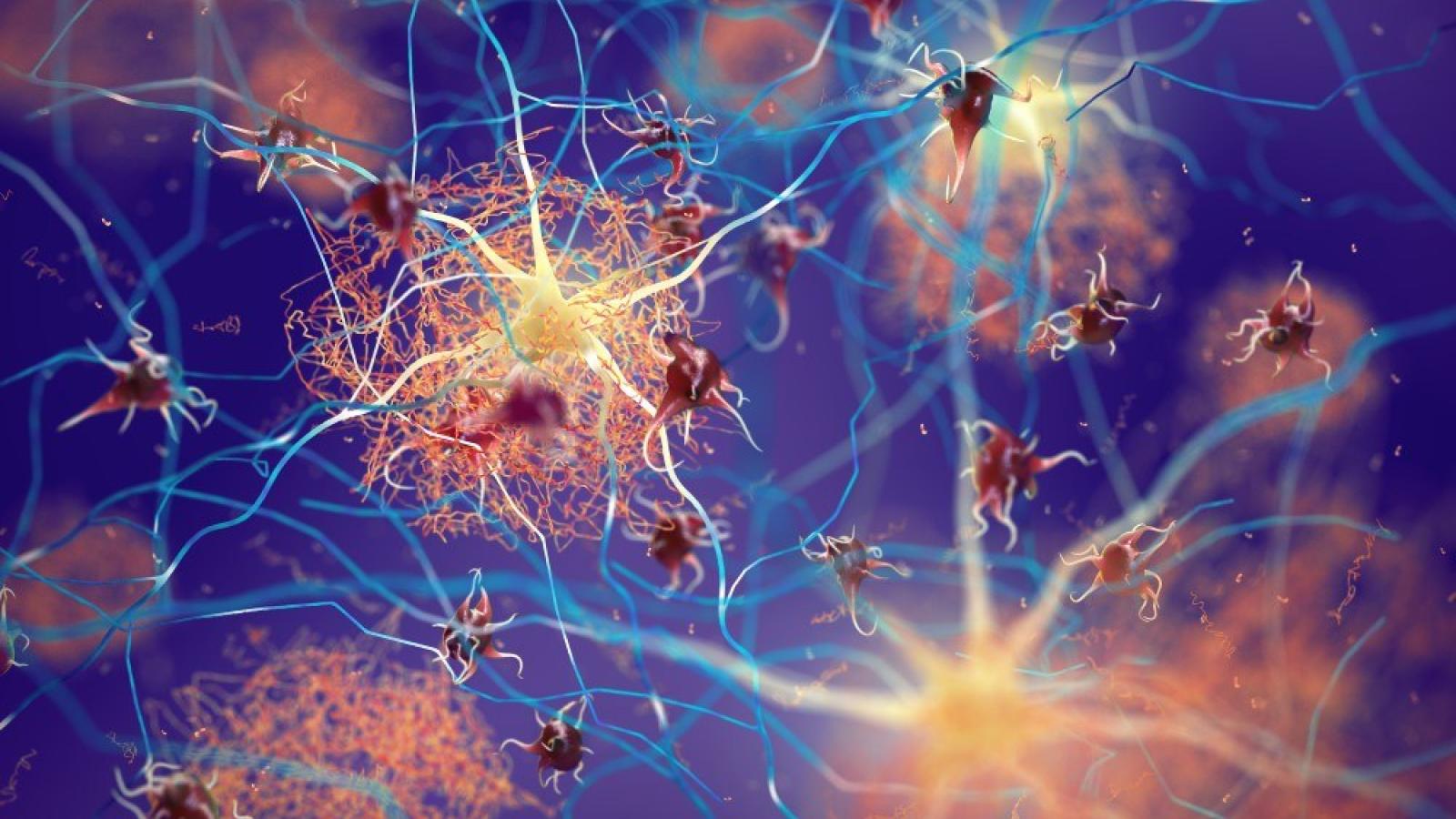We are pleased to announce the recipients of the second round of the UK DRI Collaborative Proteomics Studies Award Programme. This programme is designed to encourage UK DRI researchers to incorporate mass-spectrometry-based proteomics into their work and help them to establish new collaborations.
The three projects awarded in this round will investigate the roles and interactions of different proteins in neurodegenerative disease, helping find potential new therapeutic targets.
projects awarded funding in this round
These are three fantastic projects from brilliant up and coming researchers from across the UK DRI. Having worked with the awardees previously, I am glad to see the further development of their ideas and I’m very excited to see the results from their work.Dr Beth GearyScientific Lead of the UK DRI Proteomics Platform
Selected by an expert panel, the three successful projects in this round are as follows:
Protein interactions in vascular dementia
Dr Sarah McGlasson (postdoctoral research fellow, Hunt lab, UK DRI at Edinburgh)
This project is investigating a rare form of small vessel disease known as retinal vasulopathy with cerebral leukoencephalopathy (RVCL), which is characterised by vascular dementia and blindness. There is currently no effective treatment for this disease. RVCL is caused by mutations in a gene called TREX1, which cause the protein to be mislocalised. In collaboration with Dr Beth Geary, Scientific Lead of the UK DRI Proteomics Platform, and Prof Kathryn Lilley, Professor of Biochemistry at the University of Cambridge, Dr McGlasson will use spatial proteomics to work out how the mutant TREX1 protein interacts differently, and how its location within the cell changes compared with the non-mutant version of the protein. Understanding the causes of microvascular dysfunction in RVCL will lead to improved patient care and fundamental insights into neurovascular dysfunction in vascular dementia.
The role of TrkB in neurodegeneration
Julia M Zbiegly (PhD student, UK DRI at Cambridge)
A protein known as Tyrosine receptor kinase B (TrkB) is a regulator of neuronal survival and synaptic plasticity. Its signalling is altered in neurodegeneration and ageing. While previous studies were focusing on gene expression and downstream signalling, little is known about the proteins TrkB interacts with in health and disease and how these may contribute to altered signalling in neurodegeneration. In this project, Julia Zbiegly will collaborate with Dr Bethany Geary to investigate the proteins TrkB interacts with in post mortem brain tissue of healthy young and aged adults, and Alzheimer’s disease patients. They aim to establish a comprehensive list of altered interactions which can be further investigated for their functional effect and their potential as therapeutic targets.
Understanding endocytic dysfunction in Alzheimer’s
Dr Natalie Connor-Robson (Emerging Leader, UK DRI at Cardiff)
The genetics of late-onset Alzheimer’s disease are complex, and the mechanisms driving the disease remain elusive. The endocytic pathway helps cells manage their waste by recycling and sorting cellular machinery, keeping them functioning normally. It is strongly implicated in late-onset Alzheimer’s. In this project, Dr Connor-Robson will collaborate with Prof Pete Cullen, Royal Society Noreen Murray Research Professor at the University of Bristol, investigating the impact of endosomal dysfunction in cellular models of Alzheimer’s disease. The project aims to provide new insight into how risk genes in Alzheimer’s impact the endocytic pathway, with the potential to identify new therapeutic targets.
UK DRI researchers can find out more about this award via the Portal. Find out more about the UK DRI proteomics platform in our Q&A with Dr Beth Geary and announcement article.
Article published: 27 January 2023
Banner image: nobeastsofierce/Shutterstock
